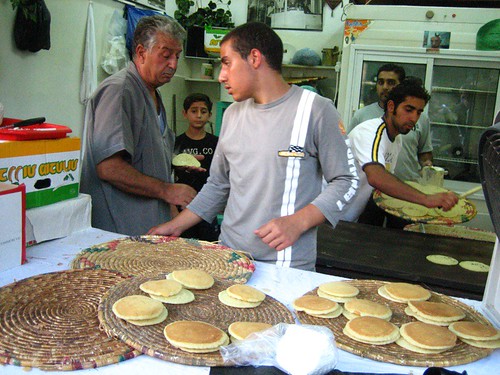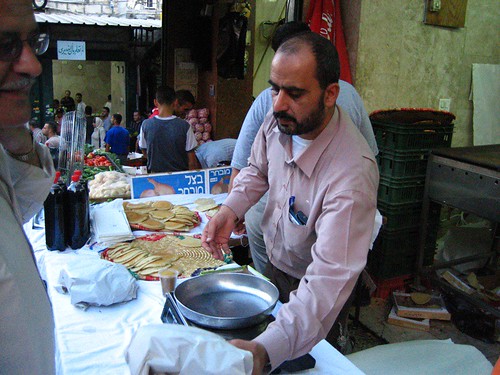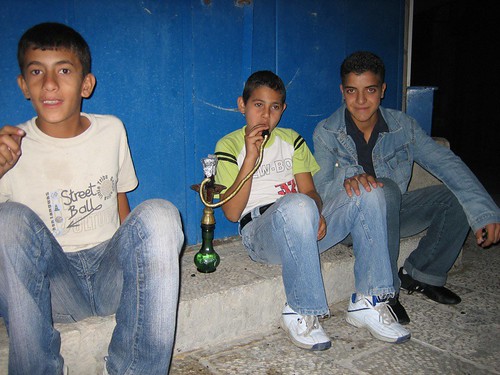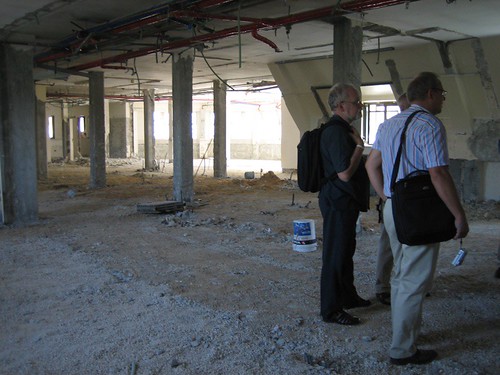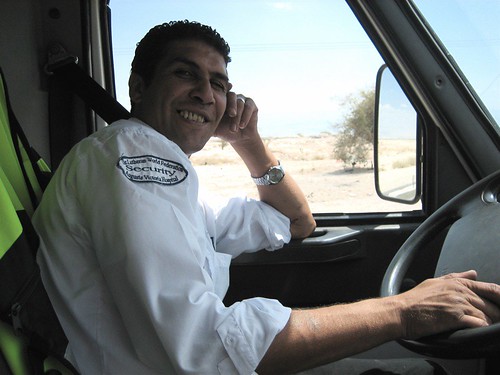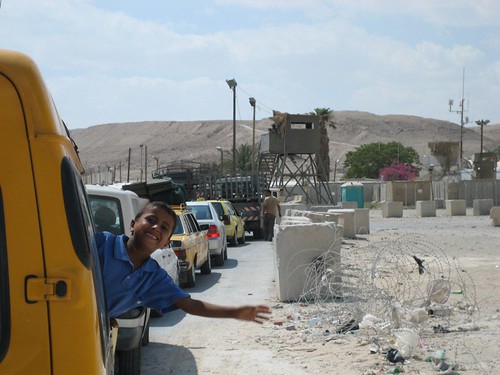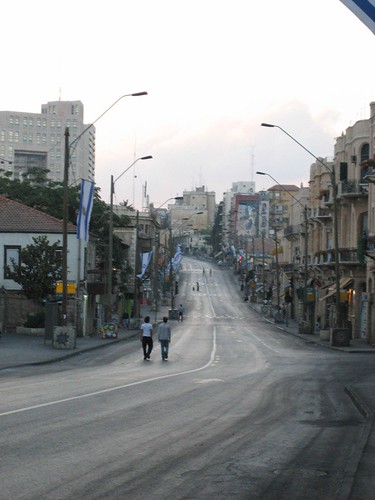
Ain’t nothin’ here.
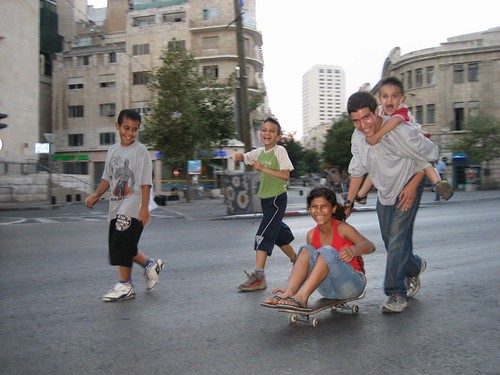
Cute Israeli kids cruising down Jaffa Road.
Phil wanted a photo of himself lying in the middle of the street. As he was getting up a guy on roller blades skated over. “Hey, do that again! I’ll jump over you!”
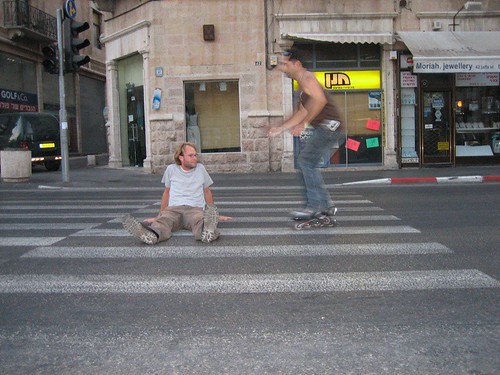
Coooooool!!!
“Someone told me someone was doing cartwheels over here,” he said after multiple jumps over a supine Phil. That was me. The “worth mentioning” notch on the scale of interest is brought down a few pegs on Yom Kippur, I guess. He was a nice guy, Canadian, living in Jerusalem for a while and working at AOL. He had spent the whole day ‘blading round the empty streets of the city.
Karin, Phil and I then wandered to the Old City, hoping something would be open there. It wasn’t. (Everyone was inside breaking the fast.) Then we wandered back to West Jerusalem as a few of the shops started to unlock their doors. Then we wandered back to the Old City where people were emerging from iftar and filling the streets again.
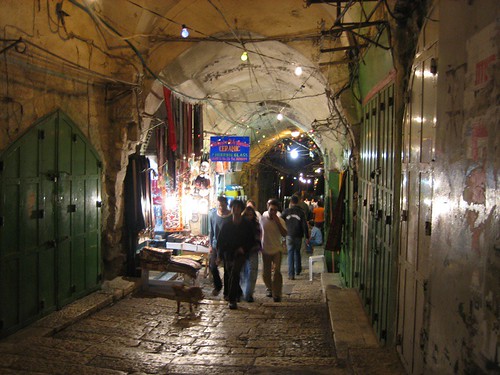
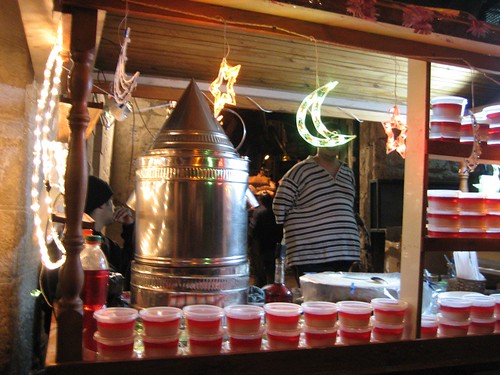
Was it Burger King that had that mascot with a moon crescent for a head? He was always wearing a tux and playing a piano? Anyone?
Yesterday Karin and I got to go along with Sri, who works with the Mennonites here, to a village northwest of Hebron. There is a needlework co-op in the town that provides employment opportunities to the women of the village. This is Souad showing us the products made by the local women.
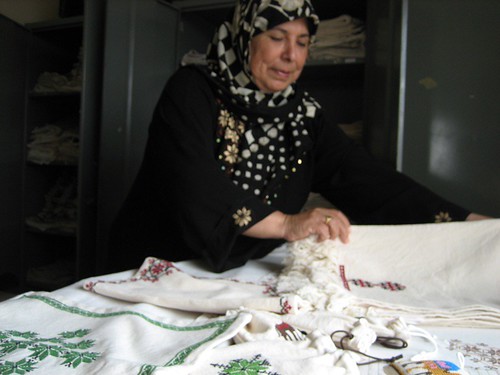
“Hayda isimha [this is called] eleven F!” she said, pulling a table runner out of the closet.
“Hayda isimha twenty-two D. Twenty-two D, see?” she said, pointing at a cross-stitched camel. She proceeded to tell us the names of each of the patterns. Fourteen C, seven B, we saw them all.
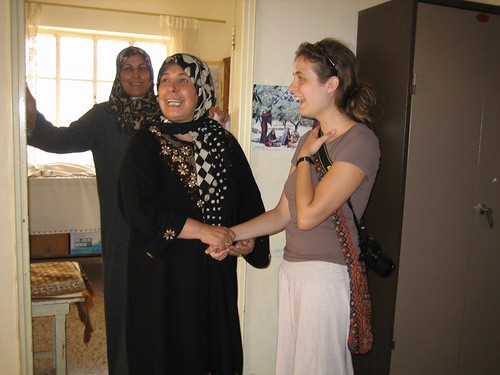
Here is Souad convincing Karin to marry her son, a successful (and handsome!) lawyer in Ramallah. Go for it, girl!
The Palestinian hills on the way back:
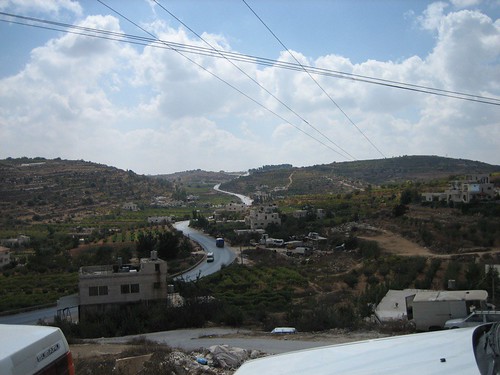
The checkpoint hold-up on the way back:
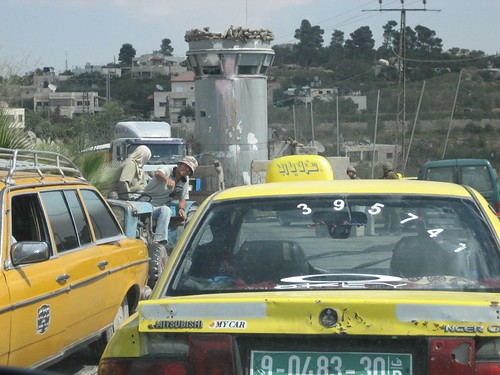
Chances are I’ll have a 2.5-week blogging hiatus after this entry. When I post again I will likely have
a) exited and re-entered Israel,
b) re-entered and exited the United States,
c) been strip-searched (again) by the friendly employees at Ben Gurion Airport, and
d) a second brother in law.
CAN. NOT. WAIT.
